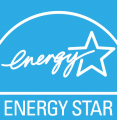Sustainability
Building Standards & Procedures
Integrated Pest Management
THE MART is committed to controlling pests inside and outside the building using an integrated pest management (IPM) initiative that limits building occupant exposure to pesticides. This initiative centers on two principles:
- Active monitoring and long term prevention using an ecosystem-based approach.
- Least-toxic approaches when management is needed to minimize risks to human health, beneficial and nontarget organisms, and the environment.
To assist THE MART in meeting its IPM goals, all tenants are encouraged to work with THE MART on any pest-related issues, as the use of non-least toxic pesticides for management must involve the building. Further information is available in THE MARTs IPM policy. Please contact Dave Foley, Director of Operations, to address Integrated Pest Management questions.
Facility Maintenance & Renovation
THE MART strives to ensure the health of its tenants with construction and renovation of interior and exterior spaces. It follows a building Facilities Maintenance & Alterations policy designed to:
- Minimize dust from leaving the space under construction by creating physical barriers, providing sticky mats, limiting HVAC use during construction and using filtration media, keeping the construction area clean, and flushing the space before occupancy.
- Minimize indoor air quality issues after occupancy by encouraging the use of low-VOC adhesives, coatings, building materials, and furniture, monitoring VOCs continuously in the building, and using high performing filtration media in all air handling units.
Tenants seeking to renovate space are encouraged to work with the building to follow green building standards such as LEED, or seek LEED, Fitwel, or Well certification as part of their renovation.
Ongoing Purchasing & Waste
THE MART adheres to a waste policy that seeks to minimize waste from the building from its operations as well as its tenants. THE MART’s purchasing and waste minimization goals, part of its Purchasing & Waste Management Policy follow three core principles:
Minimize waste creation through smarter purchasing.
Minimize the lifecycle environmental costs of products that are purchased by prioritizing products that meet one or more life cycle impact certification standards. These include:
- Interior reuse
- Furniture and material reuse
- Designing for flexibility
- Sourcing products that meet one or more recognized Environmental Product Disclosure certification requirements in their supply chain
- Designing waste systems to accommodate diversion through better user experience
THE MART supports waste diversion of the following waste streams, which are outlined in its Purchasing & Waste Plan
- Bottle containers, such as plastic, aluminum, and glass container recycling
- HDPE (#1) plastic containers
- Cardboard recycling
- Office paper recycling
- Food waste composting
- Construction & Demolition waste, including
- Landifillable, non-divertable waste
Plastics that are not bottles but meet recyclable criteria, such as #1 HDPE plastics, may be recycled if they are clean. Reusable building materials and furniture may be repurposed with advanced notice.
Tenants are encouraged to work with Kevin Dick, Sustainability Consultant, to discuss office diversion options, including purchasing compostable products and reducing waste creation.
Building Air & Water Quality Testing
THE MART conducts periodic air and water quality testing for contaminants. Air contaminants include carbon monoxide, carbon dioxide, particulate matter, and volatile organic compounds. These chemicals can be unhealthy in high concentrations. Water contaminants include bacteria (legionella and coliform), heavy metals including lead and copper, pH, chlorine concentration, and organic contaminants. THE MART tests both common areas and tenant spaces and maintains the building within acceptable limits.
The most recent tests in December 2021 reported all contaminants within acceptable Environmental Protection Agency limits, or where applicable, more stringent limits denoted as best practice by LEED and FitWel building standards.
Site Management and Green Cleaning
Green cleaning in the building is managed under the Green Cleaning policy.
- LEED ID&C Cheat Sheet / List of Requirements
- WELL Handbook
- Fitwel Handbook
